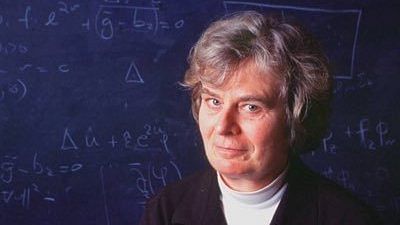Karen Uhlenbeck is first woman to win Abel Prize for Mathematics
American mathematician Karen Uhlenbeck, most noted for her achievements in geometry, analysis, and physics, has become the first woman to win the coveted Abel Prize since 2001. The Norwegian prize is modelled directly after the Swedish Nobel prize and carries a cash reward of 6 million Norwegian Kroner or approximately Rs 5 crore. More on her work, achievements, and journey in this detailed, long Quanta Magazine piece.
X-ray chimneys at the centre of our galaxy
Researchers have found that right at the centre of the galaxy, there are twin columns of X-ray plasma that are being emitted out of the Milky Way. Called ‘chimneys’, they extend outwards, upwards and downwards, for 522 light years. They are hotter and denser closer to the centre and could be caused either by the supermassive black hole in the middle of our galaxy or from regular supernovae explosions. More on Yahoo!
Human brains can subconsciously see earth’s magnetic field
A new experiment by scientists at Caltech shows that humans have a subconscious ability to detect geomagnetic waves. Participants were placed in a Faraday cage that blocked external magnetic fields and then were subjected to controlled magnetic fields. While the subjects reported not feeling anything, brain scans showed that there were altered response patterns to the field. BGR has the details.
Physicists explain why time flies
We often feel like our childhood lasted an eternity but as we age, time flies. Researchers from Duke University now have an explanation for it: apparently, a temporal discrepancy is caused by the increasingly slowing speeds at which images are obtained and processed in the human brain as the body ages. More on Inverse.



